South Africa still awaits its golden age
- Published
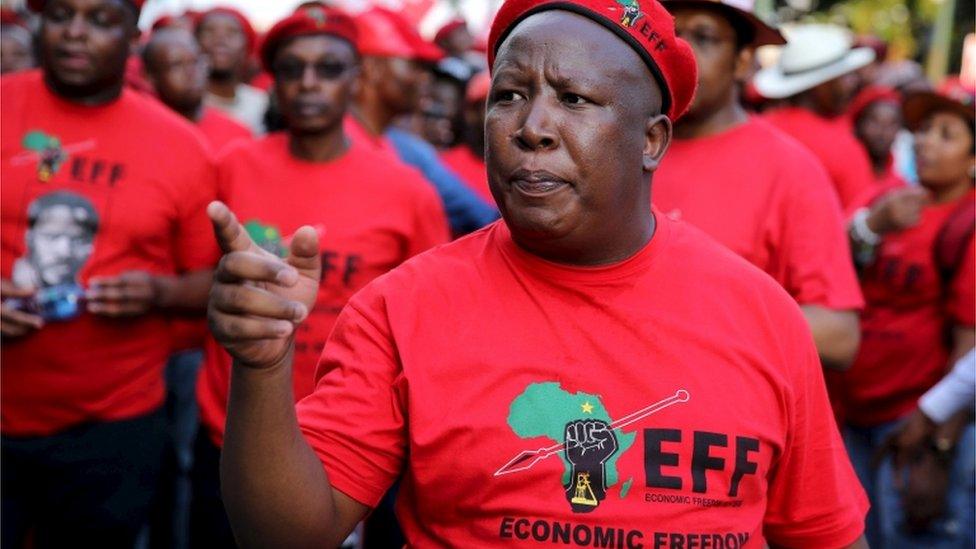
Julius Malema is determined to force change in the country
As South Africa enters its 22nd year since the end of apartheid it seems another revolution is at hand. Or is it?
Judging by the tumultuous events of the last few weeks it seems like Nelson Mandela's peaceful revolution is about to give birth to its opposite number.
Covering one of the many protests, I marched with Julius Malema and his thousands of Economic Freedom Fighters (EFF) through Johannesburg.
All I could see was a sea of red t-shirts in the streets of the city of gold.
We began our march from Mary Fitzgerald Square. The protest grew into the biggest march seen in the city in recent times as we walked to the South African Reserve Bank branch, our first stop.
The cantankerous Mr Malema told the bank officials who were brave enough to come out and receive the memorandum, that he wanted zero charges on bank fees for the poor and the aged.
In the scorching heat we then proceeded to the Chamber of Mines.
As usual, he did not hold back when he told the chamber's official that the EFF wants to "nationalise the mines".
I asked Malema how many years he plans to keep marching against the ruling ANC.
He told me: "It won't be long. We want to own the means of production. The time of the ANC is over."
It was when he reached the Johannesburg Stock Exchange, in Africa's richest square mile Sandton, that he showed his true colours, external.
He told Stock Exchange CEO Nicky Newton-King: "We are not Mandela. We do not preach reconciliation. We want remorse."
And it is precisely because of this line that I asked myself the question: Are we at the cusp of the second revolution?
Student protests
But this is not just about Malema. This is about the people of the Republic of South Africa.
I also walked with university students from Wits and UJ (University of Johannesburg) who were campaigning against a rise in fees.
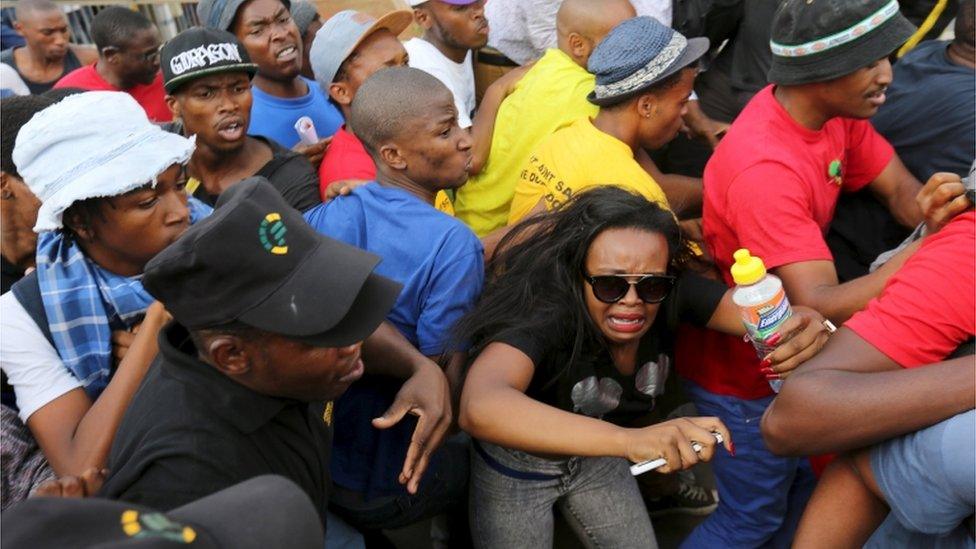
Students have protested over fees
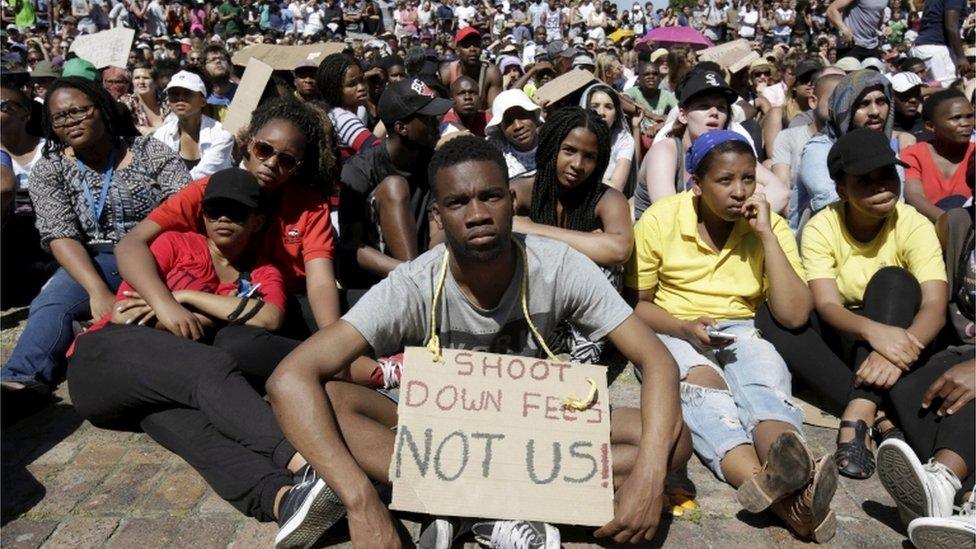
Students have protested in other cities, such as Cape Town
Chanting a 21st century slogan #FeesMustFall, this was an organic uprising - similar to one I witnessed in Soweto back in June 1976.
I saw something I had never witnessed in South African politics. There was no ANC or any other political party that was behind the protest.
The students took it upon themselves to lead their own struggle without any political party influence.
In fact, they were marching against the ANC, the oldest liberation movement on the African continent.
It felt to me like a country truly coming of age. After 21 years, South Africans were rising against the party credited with delivering freedom from white minority rule.
The students ended up right at the top, marching to the seat of power in the nation's capital in Pretoria.
They demanded that President Jacob Zuma come down from his office at the Union Buildings to address them.
He was locked in a long meeting with university management and student leaders.
Some in the crowd started burning mobile toilet facilities and breached a fence separating the masses from the riot police.
The police responded by firing stun grenades and tear gas.
Social movement
All of this unfolded exactly where I was standing 21 years before on 10 May when Nelson Mandela was inaugurated as the first democratically-elected president of a free South Africa.
Placards were not limited to fees only. Many of them read "down with corruption".
It was a protest about inequality, and the lack of integrity, external of the government.
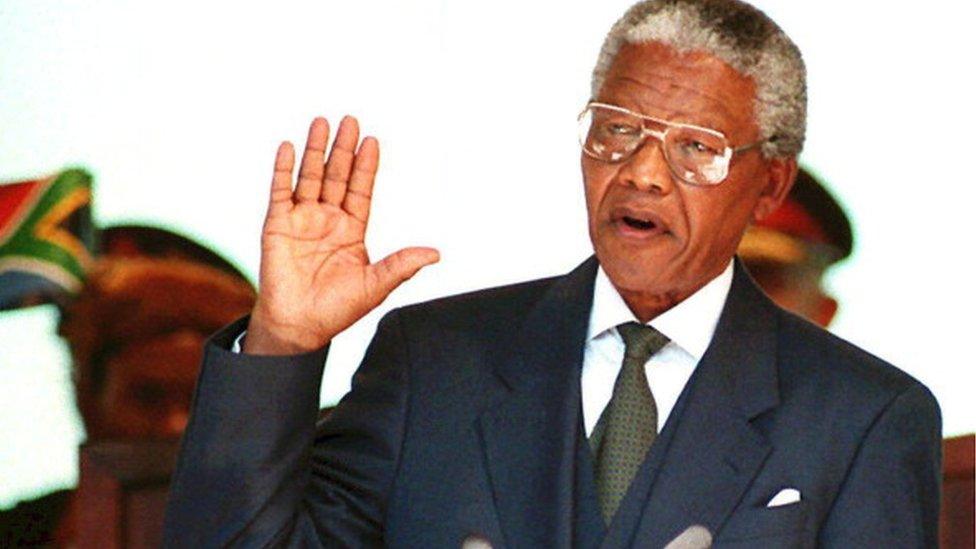
Nelson Mandela became president in 1994
The question is whether the current political leadership can transform the status quo where the vast wealth of the country is concentrated in the hands of the few.
Service delivery protests have always been localised, but with #FeesMustFall we are seeing the birth of an embryonic national social movement.
Professor Somadoda Fikeni, an expert on the ANC, says the current leaders do not have the capacity to deal with the radical transformation of South Africa.
He told me: "They lack a deep political conviction. Everything they do is at a technical minimum requirement of what is expected of them. They have a preoccupation of maintaining the lifestyle they possess.
"Some of them may be politically leftist, but if you look closely at their lifestyle you soon realise that they cannot change the prevailing levels of inequality.
"It is not in their interest to violently shake the tree that feeds them."
To understand how we got here, one has to go back to the end of apartheid.
Unrealised expectations
Nelson Mandela negotiated a political settlement, but the people expected more than politics - they hoped for justice, equality and redistribution of wealth.
But wealth is still concentrated in the hands of the few. A recent survey by the department of trade and industry - disputed by the JSE - found only 3% of South Africa's economy is black-owned, external.
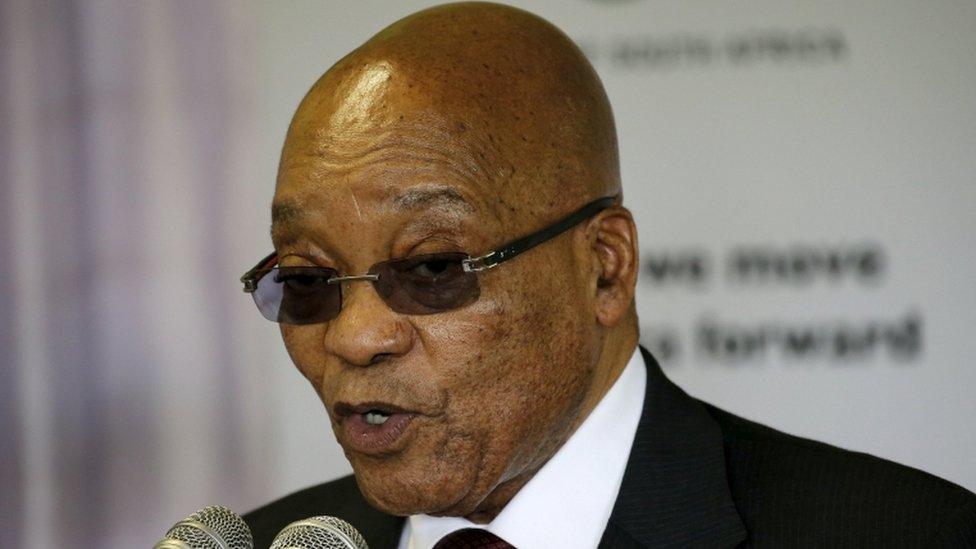
President Zuma is been mired in controversy
Ordinary people are in despair, still facing high unemployment, poverty and inequality.
Don't get me wrong - many achievements have come with the end of apartheid.
South Africa has one of the largest black middle class in the world outside the US.
Programmes such as affirmative action and Broad Based Economic Empowerment have helped to lift whole communities out of poverty.
However, there are millions of black people who are left behind, wondering whether their freedom will ever come.
When I covered the multi-party talks soon after Mandela's release many people were repeating the same line: "We are different. We are not like the rest of Africa."
Part of the reason for that was the way the people had forgiven the perpetrators of apartheid through the Truth and Reconciliation Commission.

Julius Malema:
Born 3 March 1981 in Limpopo province
Mother was domestic worker and single parent
Joined African National Congress aged nine
Elected leader of its youth wing in April 2008
Convicted of hate speech in March 2010 and September 2011
Expelled from ANC in April 2012 for sowing divisions in party
Launches EFF in July 2013

But now that sense of pride is slowly fading away as corruption, xenophobia and big political blunders become the order of the day.
One politician who was part of the negotiation team tells me: "We are no different from the rest of Africa. We are ordinary. There's nothing special about us."
Like many others at the time of euphoria, I too believed that the South African experience would be totally different from what we have witnessed in post-colonial wars on the continent.
Millions remain optimistic.
However, there are many others who think before things get better in South Africa they might have to get worse first.
- Published26 October 2015
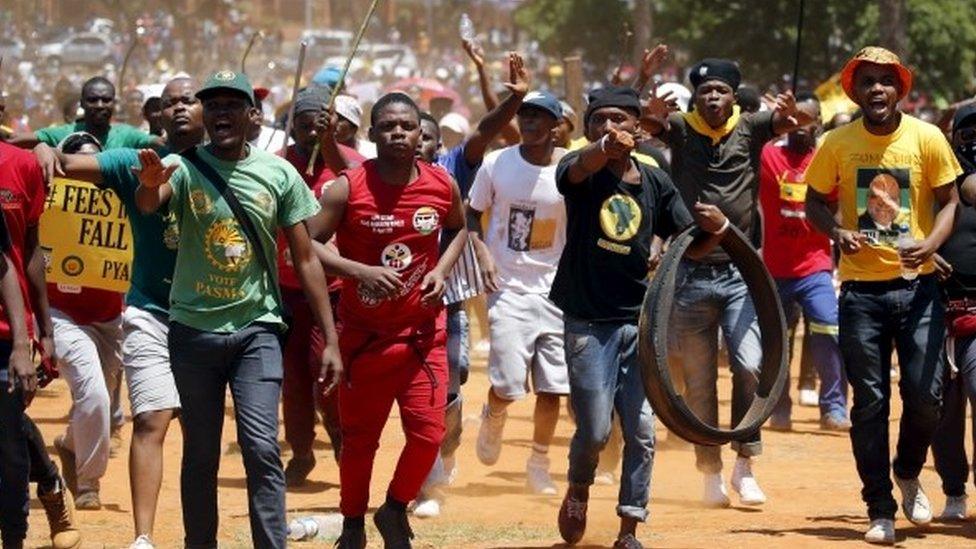
- Published26 October 2015
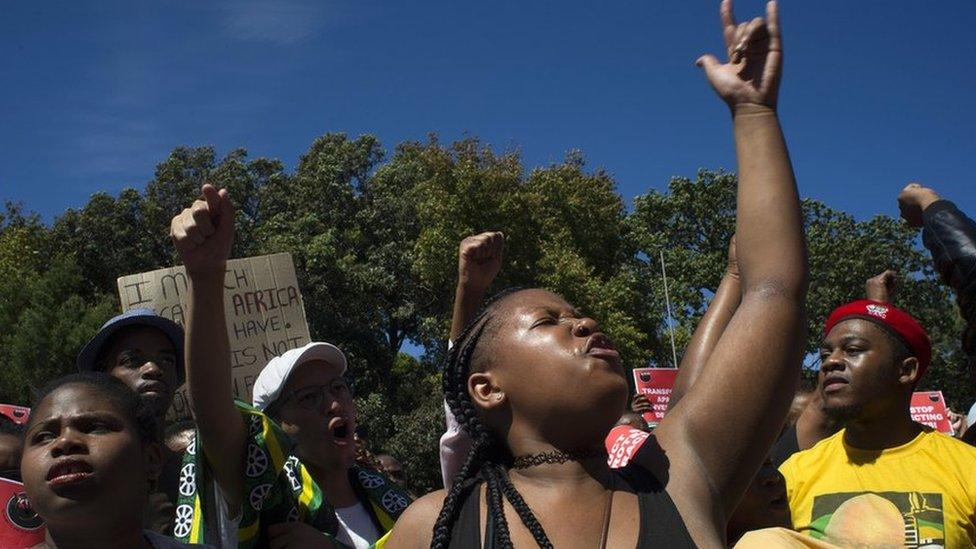
- Published4 October 2016
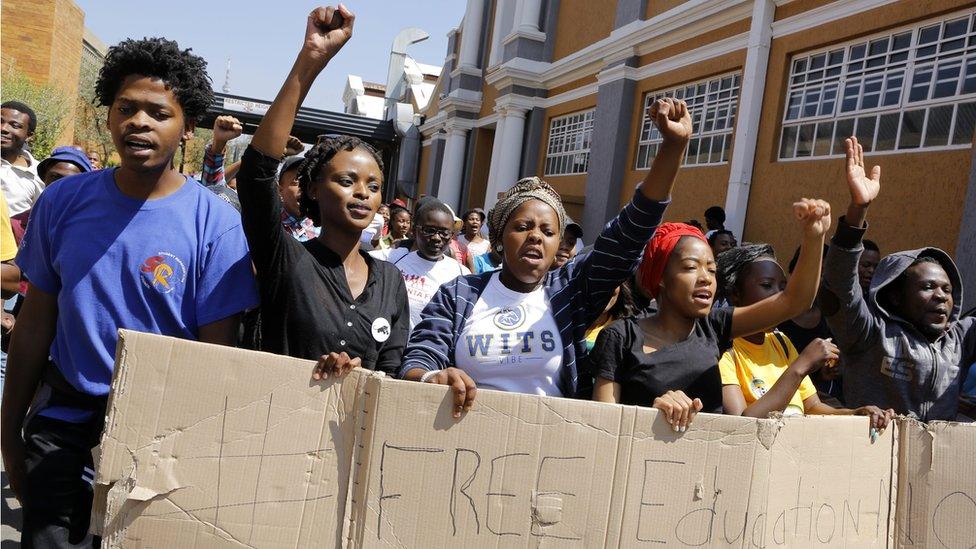
- Published9 July 2024
